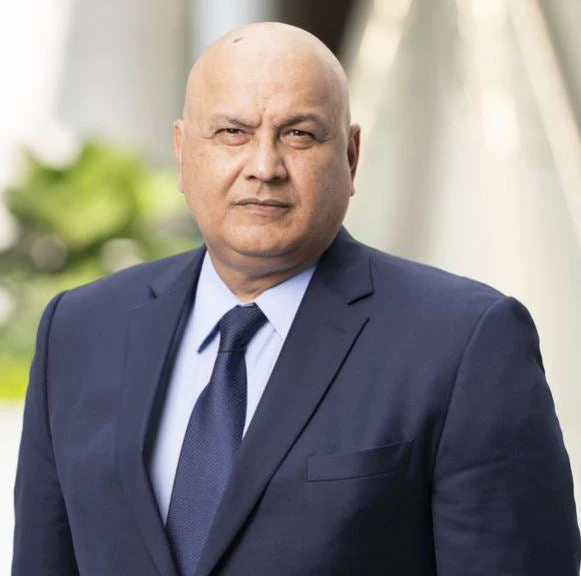 مجموعة من الطلاب يدرسون معًا. (تصوير: IKO-studio/Shutterstock.co)
مجموعة من الطلاب يدرسون معًا. (تصوير: IKO-studio/Shutterstock.co)
"Coming together is a beginning. Keeping together is progress. Working together is success." -Henry Ford
This quote embodies the spirit of the Skilling Up Mashreq (SUM) Initiative, which aims to leverage the power of collaboration to tackle the digital skills gap in the Mashreq region. SUM was launched at the Digital Mashreq Forum held in Amman, Jordan, as part of the World Bank’s commitment to drive rapid digital transformation in the Mashreq countries. This transformation is unique opportunity to help Mashreq economies address several social and economic challenges which are stalling the path to sustainable economic growth and inclusive societies.
SUM aims to meet two objectives: 1) preparing about 500,000 young women and men from Iraq, Jordan, and Lebanon for the global jobs of the future, and 2) attracting digital technology players to invest in the region.
Nearly 24,000 young people have already benefited from SUM and another 386,200 people are expected to be reached within the next two years. Eight partnerships have been established across the Mashreq countries with key international players including Microsoft, LinkedIn, Code.org, and regional platforms like Edraak, Al-Ghurair Foundation, Beirut Digital District (BDD) Academy, and Hsoub.
The SUM innovative model has demonstrated the transformational potential of a program that amplifies the digital skills-building efforts of international and regional tech players through financial and technical support from the World Bank. For example, under SUM, the World Bank partnered with Edraak, which is an initiative of the Queen Rania Foundation (QRF), and Code.org, an international non-profit organization, for the localization of internationally recognized Computer Science learning assets.
Localization includes full translation of the Code.org videos into Arabic and the contextualization of content. The outreach efforts, supported by Her Majesty Queen Rania Al Abdullah of Jordan, benefited 15,000 Jordanian students within the first month of launch. Moving forward, the localized curriculum will be used as a basis for educating public school students in both Lebanon and Jordan. In particular, the localized resources are informing the design of Computer Science curricula reform being undertaken by the Jordanian government for Grades 7 to 12 under the Youth Technology and Jobs project, financed by the World Bank, which is expected to reach 300,000 students.
SUM also served as a platform for the World Bank to support the rapid response of governments to the COVID-19 pandemic and related school closures. COVID-19 has brought educational technology into the spotlight. SUM provided a channel to build on this momentum and helped Jordan and Lebanon transition to distance learning. A partnership between BDD and Code.org in April 2020 helped reach 9,000 students at home through free online Arabic coding lessons. The World Bank served as the convening partner, BDD as the dissemination partner, and Code.org as the content partner. After a joint promotion campaign, the number of students enrolled in Code.org courses increased 7-fold.
SUM brings to light the need for flexible, industry-driven trainings that can prepare youth for the future of work. An on-going activity of SUM is to focus on a partnership between Microsoft and LinkedIn to bring their global skills initiative to vulnerable and underserved youth of Lebanon and Jordan. The initiative offers free courses and Microsoft certifications for the 3 most wanted technical jobs: Software Developer, IT Administrator, and Data Analyst, along with 7 other learning paths for Financial Analyst, Graphic Design, Sales Representative, Project Manager, Customer Service Specialist, Digital Marketer, and IT Support /Helpdesk. Local partners, BDD in Lebanon, and Injaz in Jordan will ensure the implementation of this initiative and expect to reach 4,000 vulnerable and underserved young people within the first 6 months of launch.
SUM has a particular focus on vulnerable youth and women with the aim of creating innovative employment opportunities such as those available through the gig economy. The World Bank is partnering with Hsoub to prepare refugees and vulnerable groups to access quality freelance opportunities on the largest gig economy platform.
Policy makers around the world agree on the notion that in order to prepare the youth of the region for the future of work, we need to change how we teach and train. At the World Bank, we not only believe in changing the education approach towards skills development but also innovating our models of collaboration. We need all hands-on-deck to tackle the skills gap in the region and as Ford quoted above, working together is the only route to success.


Join the Conversation